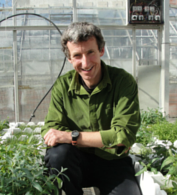A new international study has found the relationship between soil carbon and its impact on global warming is more complicated than first thought.
Research lead author Professor Natasja van Gestel from Texas Tech University was joined by a team of international scientists, including Associate Professor Mark Hovenden from the University of Tasmania, in analysing the relationship between soil carbon and global warming.
In a warmer world, many researchers are concerned that soils will become a ‘carbon bomb’, accelerating climate change.
“Carbon in the atmosphere, mostly in the form of carbon dioxide, traps heat and warms the Earth.
“Compared to the atmosphere, soils hold a vast reservoir of carbon; about four times as much. If soils lose this carbon to the atmosphere in the form of carbon dioxide or methane, another heat-trapping gas, then the pace of climate change will quicken.”
Previous studies have involved heating up soils in field experiments to analyse the impact, with one major study concluding soils that contain the most carbon also lose their carbon most easily when they become warmer. Professor van Gestel and the research team found that the answer is not that simple in the latest study, Predicting soil carbon loss with warming, which was recently published in Nature.
“We had access to a larger data set than was used in the original paper, and we were concerned the original paper’s conclusions relied heavily on just a few experiments that had carbon-rich soils,” Professor van Gestel said.
“We had access to more data points from a wide range of soils, so we could do a more powerful and balanced analysis.”
With the larger data set, scientists concluded soil carbon responses were not easily predicted, either from soil carbon stocks or from other variables that were examined.
“Our study doesn’t change the fact that some soils lose carbon in warmer conditions,” Professor van Gestel said.
But unfortunately, our larger data set showed that the relationship between soil carbon and warming is complicated – it varies from place-to-place and is likely dependent on not one, but several variables.
Interested in gaining a PhD and conducting your own research? Apply now to become a research student.
